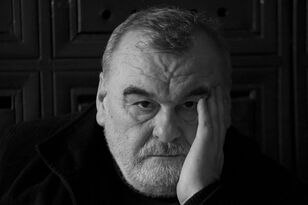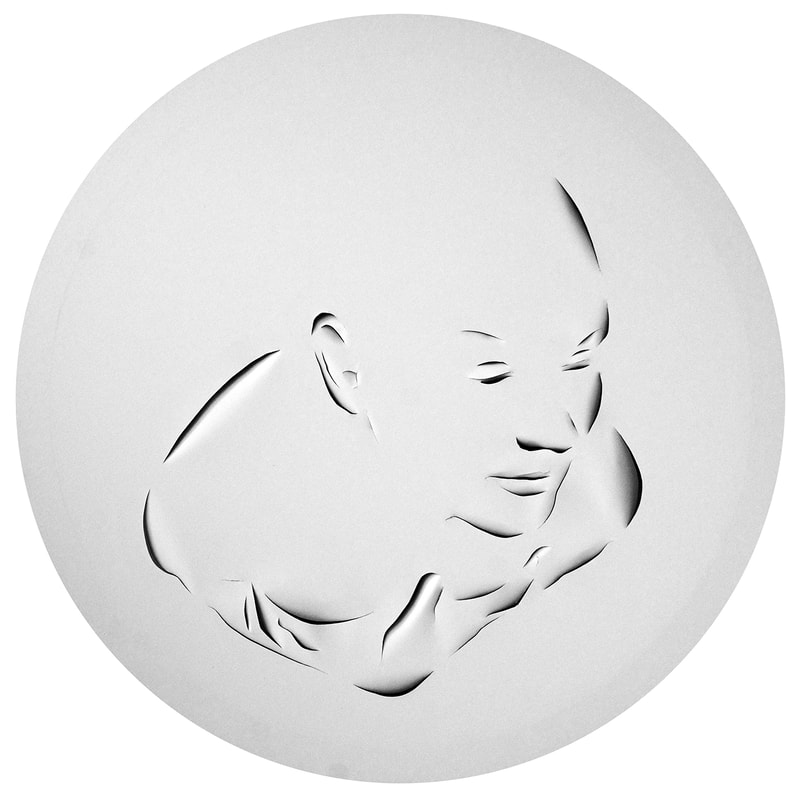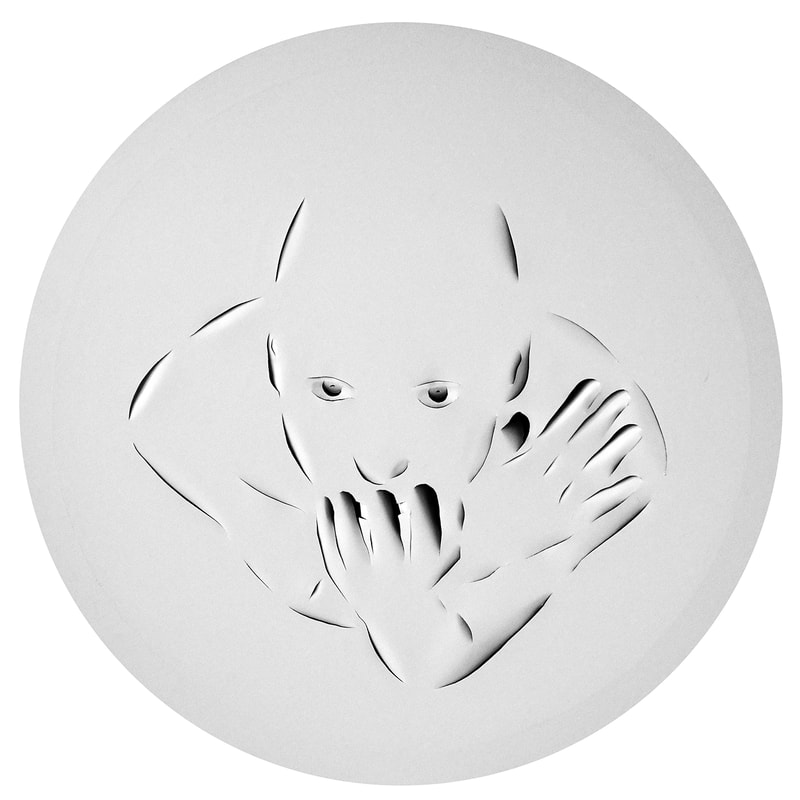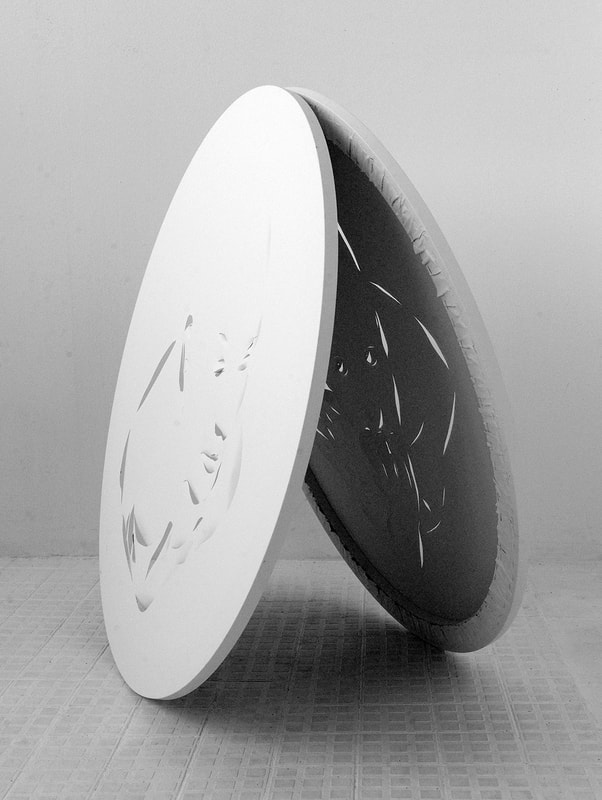Amid all that never-ending talk about money
by Ivan Štrpka
Amid all that never-ending talk about money, about the profits and losses of whatever it may be; amid so many people freely mutating into mindless puppets of money and consumption, the time has come to shunt the topic slightly. To say a word or two about something that’s from distant antiquity and yet, once again, unexpectedly up-to-the-minute and new. About an elementary energy, for human beings “as indispensable as oxygen or carbon”, Leon-Paul Forgue declared a century ago – to which list we today, nostalgically remembering the oxygen, can add only the latest materials and commodities. In contrast to civilisation’s quantities, poetry has been changing its forms from time immemorial, and the way it replenishes our world is so commonplace that usually people scarcely notice it in their midst. But it works! And it cultivates free, unimpeded breathing.
Is there some connection here with an ancient custom and ritual of the renewal of human language? And with its perennial hoarding, sclerosis and extinction? Where you are right now – that is the question.
I am writing a gloss on poetry. In the middle of an empty room in a museum, I bend down and pick up a tennis ball. But what about all those aggressive, hollowed-out words incessantly flying from all sides?
In spite of abiding troubles, it is almost beyond doubt that in Slovakia literature does exist. Today we have definite, more or less indirect or direct proofs of the occurrence of poetry. Actually, there are perfectly acceptable indications to hand that one can even LIVE almost poetically (for an example, see Ivan Laučík) – right to the limit of one’s powers, creatively and freely. And independently of hollowed-out words, destructive deeds, and ideas reduced to kitsch.
Granted, it is still the case that “a stupid person is uncomprehending of all language”: here the ancient Greek Heraclitus uses the term logos, which from the first he marks as being MORE than JUST A WORD. A philosopher, to be sure. But what poetry wants to do here, and the protest it has to make – often we do not understand that. After all, being uncomprehending is still an entirely hopeful position, somewhere on the frontier of a new cultural awakening, or at least interest or eructation. Maybe the latter is already pre-language. And besides – here is the inexpressibility, the strangeness, which is “the feeling of ‘otherness’ in its purest and most primitive form”, Octavio Paz remarks.[1] Human language somewhere on the borderline, a mysterium tremendum sketching its contours?
Essentially, perhaps, it is no great matter, that word uniquely evoked and creating meaning from the tensions of the otherness of things; above all, perhaps, what matters is to perceive it in action, together with Heraclitus: “how the thing that is different agrees with itself: a back-turned harmony, like that of the bow and the lyre”. More exactly, perhaps, “a back-tensed harmony”, a translator of Heraclitus might insist. Precisely this, it may be, is the basic initiating act, where poetry stakes its life. And its meaning, which is a component of constant change. Perhaps, precisely in this back-tensing (incessantly created by a variety of holds) of incongruous things which agree together, the poetic effect of language and its potential energy reaches its climax. At this point, our current manuscript tightens and our current reading relaxes. Meaning blasts like a gunshot or sets things a-tremble; and its carrier may be purely and simply that otherwise non-existent Heraclitean “hidden harmony”, which is better and more real than the concord that is evident. (A vitally balanced bowstring and an arrow, and held breath? Here one does not speak of a target – here the act of intervention and the clearly articulated swishing endures.) Ahh, harmony! – that long-ago-surpassed distressing state of things is today quite obscenely compromising, and for this very reason it becomes a possible model of communication and a possible full-of-life present-day story to convey. Admittedly, in its inwardly working “concealment”.)
Ahh, concealment! – antique genie, again and again enclosed in a bottle that changes shape!
(Note in brackets for those who like further clarification: have no fear of the hidden spectres of this type of writing, with its proverbial incomprehensibility! It is above all the fertile CONCEALMENT of our involuted, deeper-going and further self-entangling language, which seeks, and here and there creates, different back-tensions in the formulation of new meanings that are coming to light. Right to the very lip on the verge of the downfall of language, or to where its formulation, clamped tight to what is within, will explode back to its origin. But its meaning lies before it, out in front – in borderline tension it is born and explodes, comes bulleting forth, beyond itself to the context of its expression and reading, heading to meet its sense in the context’s developing action. And our unconcealing reading becomes its accomplice. It is as clear as a small child’s experiments and babbling. And high time to close every bracket.)
Have no fear, the genie of elucidation, stuck fast, is still there concealed in the bottle! And concealment continues and extends beyond our writing. The genie’s child – the authentic meaning – lives on in freedom. The old spirit of concealment remains on in the bottle, and the bottle-glass of transparency remains whole. In short: a fine prospect for a reading that is redolent of vital discovery. It has its inimitable specificity and maybe even existence. It is an open game which one plays with the closed bottle to win authentic meaning. And maybe our genie quietly swallowed that, a long time ago. The bottle post lives. Ultimately, all of this may be principally an unconcealed articulate resistance to stupid universality. Look there, an airy hill: a première of the sensitivity to that which is hidden! In the end, “the logos, which grows all by itself, belongs to the soul”, our ancient Greek declares.
Our world surfaces before us and simultaneously vanishes. For example, “after having largely contributed to speeding up the various means for the representation of the world, with optics, electro-optics, and even the recent establishment of the space of virtual reality, contemporary sciences, a contrario, are engaging in the eclipsing of the real,” Paul Virilio pointed out,[2] calling this the aesthetics of scientific disappearance. Whereas poetry today depends rather on some sort of aesthetics of illumination from concealment – which is outwardly the human dimension of the space of the surfacing world, made visible or invisible, without domination and without destruction. And living human language strips it of the illusiveness of virtual images. That logos – open, free-creatively speaking reality. While the virtual utters only itself, in its circle it presents itself within a space of human thinking in which language illuminates the lie of reality and the lie obscures, erases and darkens language. It is not just a place of simulation, but also a place where reality is shrouded. Contrastingly, poetry creates (expands, deepens) human reality by means of language.
Let us not be in darkness! Let us compromise ourselves in the living daylight of meaning.
But what point is there in knowing about this? Just do your writing and communicate, just make strenuous effort and compromise on the path of participation! But what’s this about knowledge? Why must we play this old game with feelings, ideas and thoughts? To what essential capability does it open our way? In this connection, because poetry is above all a matter of unanticipated connections, I remember something Ezra mentioned (that same horrifically problematic Ezra Pound, who in the name of an ideal of good became fatefully involved with the spectres of reality, economy and fascism) while musing on the subject of our interest, in his otherwise disagreeably professorial book ABC of Reading. So then, both of us remember that, one beautiful Italian day, the duke of Milan sent the splendid painter Pisanello (who “painted horses so that one remembers the painting”) to Bologna, not to paint a horse but actually to BUY one for the patron himself. The purse was put in the right hands. Because the painter “Pisanello had to” (really) “LOOK at a horse.” And genuinely to see it whole. All the way to the bones of its ancestors and the gallop of its descendants. As an artist at the head of his field (damn, that still makes it sound like a steeplechase!), at first glance he knew more about a horse than any of His Grace’s dealers. It was child’s play for him to sniff out and to SEE the right horse even on the other side of a hill. The cynical duke had made no mistake. Why that kind of a “nose for a horse” in the eye could not also be effectively used for the active appreciation and ranking of poetry in the world: to Ezra and to me, that remains an incomprehensible mystery.
So then: let us analyse and synthesise, but above all let us smell. Let us touch. LET US LOOK. We know what Rimbaud postulated long ago: “The poet must be a seer”. Simply that in poetry one must indeed – and in a single blink – “look at many things and circumstances simultaneously,” Ezra remarks, “and it seems that we have only very few reliable facts at our disposal”. Non-venal researchers will confirm that for us, sarcastically. Let us be in the thing. Let us perceive nineteen-to-the-dozen, simply let us not immure ourselves in fine intellectual constructions built over the thing!
Ultimately, Ezra himself summed up his lifelong experience in creating his gigantic CANTOS with just a few words on the margin: vanity, insufficiency, failure of resources, breakdown of the method, or at the very least non-achievement. In terms of the effectiveness of his own language and also of the human being, in terms of history and his personal struggle with evil, and indeed of the motive force of evil. “Re USURY: I was out of focus, taking a symptom for a cause. The cause is AVARICE,” [3] he added (in the large letters that he uses in his dynastic CANTOS to write the names of the mythical founder-emperors of China): this, right at the very end of his labours. Those are evidently the last words he ever wrote. Avarice as the dark determining thread of human minds and history. It is avarice that most destroys our world. The avarice of ownership, the avarice of power and mastery. The avarice of enmity. The avarice of stupidity and hollowed-out words. With his final utterances he managed to strike the mythical demonic face of our human evil, which attempts to destroy any CANTOS whatever and our own live presence in them. An enormous snout opens up in us, capable of swallowing things and relationships, and all the words of our living human languages. It functions. Insatiable power, fantastical consumption, grand gluttony. But it will not swallow and will not devour all our living words, nor will we ourselves thoughtlessly consume and subsequently excrete them.
To anyone who sees Ezra actually writing “failure” into his living work as a great theme in process of realisation, the knowledge that comes at the very end of his Dantean singing is important. Maybe it is an encrypted message for those who constantly pursue the burning trail of precision of meaning and sense of the poem and the world it contains. All of which is the fruit of excess and opulence. Because above everything else “literature is language charged with meaning”, right out to the margin. And so, perhaps, is sense, or the search for it. “Literature is news that STAYS news,” Ezra tells us. On our lips and on paper we always have a certain choice: it can be our own language as living logos, as openness to change of our perception and thinking.
It’s high time to think about that. And also about that “nose for a horse” and about images, about the painting of horses and about dukes, and certainly also about horse-dealers. But above all: do you see that gallop? At the same time, one must have clearly in view the fact that words themselves have a ceaseless tendency towards lie and falsehood, towards misunderstanding, towards emptiness and dissolution.
“Nature loves to hide,” Heraclitus declared, and in his language he naturally articulates Nature as physis. This is in play from the beginning in our present theme. Concealment and openness: the hidden action of language and the open complicity of form. The very act of writing is in hidden complicity with reading. And vice versa. No rebus, no enigma. More a direct connection and an insight, a vector of something we still have almost no knowledge of precisely. Or, more a report and its selective reception and opening. An action. A direct unconcealing. And an actual experience. That is the trick: to be in it personally, even when perhaps we are not any definite person. Let us give ourselves a chance of a minor transformation! We are in a network. Or are we perhaps the network itself? Empathic relativity-making?
We are, however, in another dense network of unbroken babbling. At every moment we receive a ready prefabricated report of mindless manipulation and seductive banality, which remains with us for a while in the letters on screens or billboards, till it fades out entirely – indifferently, out of the nothingness that continues corroding living human language and culture. And what more?
It’s a simple matter, like authentic good taste. Choose any duke – behind him there’s a smell of purse and horse-dealers. A painter must be hired to buy us a horse, even if it’s our hundredth. And Ezra? It seems one must leave Ezra as he is, with his demons; let him continue his prodigal marvelling at the fact that he’s still on the road behind the horse, without evident value and entirely outside the picture, and apart from which, with his mysticism and multi-layered ambiguity he stinks of life. I do not mean to say that he is the proletarian of today. We are not talking about money but about values. I take that on board. We are talking about writing and about images. But what does that horse really mean?
Actually, I don’t know. I’m just writing a not very topical essay on the outer margin of poetry. And look there, the first postulate is already taking shape! In the middle of the street I bend down and pick up a tennis ball. I bend down and pick up a tennis ball. I bend down and pick up a tennis ball. Everything which at that moment need be known about the thing is contained in it.
Translated from the slovak into english by John Minahane
[1] Octavio Paz, The Bow and the Lyre: the Poem, the Poetic Revelation, Poetry and History. Austin: University of Texas Press, 2009, p. 113.
[2] Paul Virilio, The Information Bomb, tr. Chris Turner. London: Verso 1999, p. 3.
[3] From Pound’s Foreword to Ezra Pound, Selected Prose 1925-1972. New York: New Directions Publishing Corporation 1975.

Ivan Štrpka (30.06.1944), is a Slovak poet. With his kindred spirits, the poets Ivan Laučík and Peter Repka, in the 1960s Štrpka founded an individualistic poetic group, “The Lonely Runners”. He wrote a manifesto for it, which was officially banned. The matters at issue were freedom of thinking, living and making art, the responsibility of the individual, and rejection of communist dictatorship and censorship. Štrpka developed his own mode of writing and his own values of life. Works: Debut, A Brief History of Lancers (1969). Following the appearance of his short book Tristan tára in 1971 (the Slovak title, punning on the name of the leading Dadaist poet Tristan Tzara, means “Tristan’s Chattering”), a ten-year ban on publication followed. Štrpka has published many books of poetry. The more recent include: Silent Hand. Ten Elegies (2006), Fragment (of a Knight's) Forest (2016), For Every Weathercock There’s a Wind (2018), among others. He wrote the texts of songs for 12 albums by the unique rock singer and composer Dežo Ursiny. He has won diverse literary prizes. His poems have been translated into many European languages. He lives in Slovakia, in Bratislava and elsewhere.







